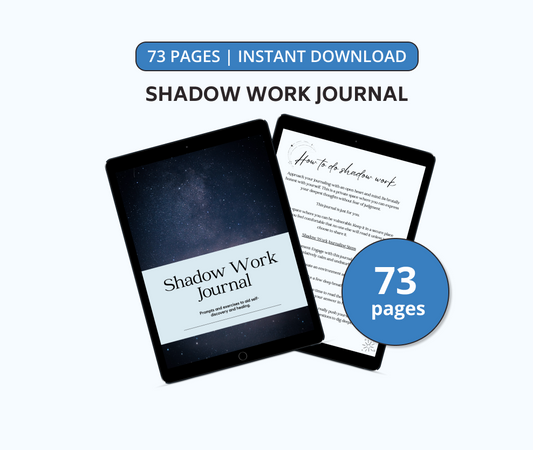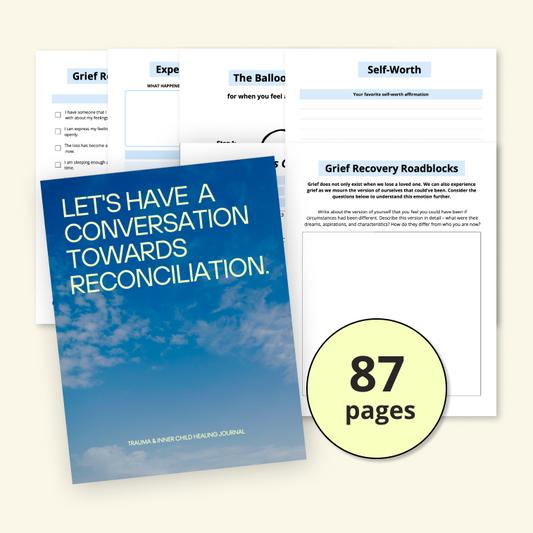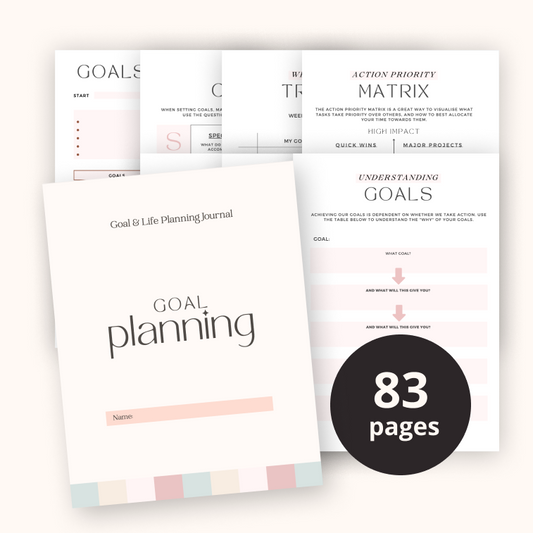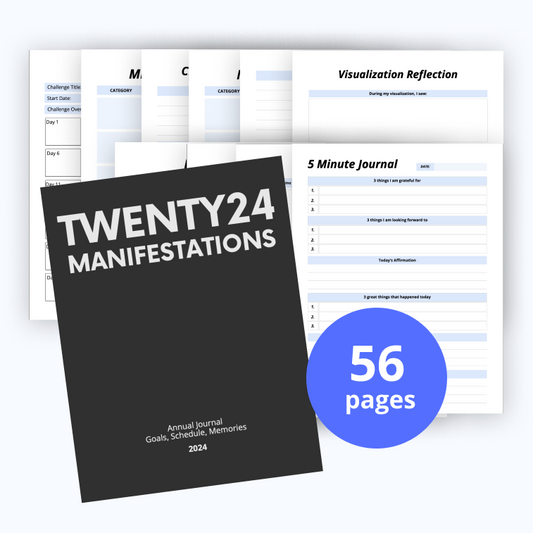Struggling to let go of past hurts? You’re not alone. Forgiveness can be a tough nut to crack, but journaling might just be the secret weapon you need. Imagine unlocking a more peaceful, forgiving you—it’s possible, and we’re here to guide you through it.
In this article, you’ll discover powerful journal prompts designed to foster forgiveness. It’s not just about moving on; it’s about growing and finding joy again. So grab your favorite pen, and let’s dive into the transformative world of forgiveness journaling. Keep reading, because you’re about to embark on a journey that could change your heart and your life.
Understanding Forgiveness
Embarking on your journaling adventure, it’s vital to truly grasp what forgiveness is and what it’s not. Forgiveness is a conscious, deliberate decision to release feelings of resentment or vengeance toward someone who has harmed you, whether they deserve your forgiveness or not. It doesn’t mean forgetting the hurt, nor does it excuse the harm done.
Forgiveness is an act of self-empowerment. It allows you to reclaim your peace of mind. You’re choosing to let go of the past to heal and move forward. It’s about creating more space in your heart for joy and serenity—a true act of love for yourself.
It’s your turn to explore these depths with guided prompts that’ll encourage this nurturing process. Dive in:
- Reflect on a time you struggled to forgive. What held you back?
- List out what forgiveness is not to you. This can help you bust forgiveness myths.
- Think of someone you’ve forgiven. How did that feel?
- Who might you need to forgive to move forward and why?
- Write a letter of forgiveness to yourself. What do you need to let go of?
- Imagine forgiving someone. What changes in your life post-forgiveness?
- Describe a situation where you wish you’d forgiven someone. Why didn’t you?
- Consider forgiveness as a gift you give yourself. What gifts does it bring?
- If forgiveness had a color, what would it be and why?
- When is it okay not to forgive?
- Create affirmations that empower you to forgive.
- Identify the physical sensations of holding a grudge. How does forgiveness feel different?
- Write about the power of forgiving someone without an apology.
- Explore how holding onto hurt has affected your relationships.
- How does forgiving impact your mental and emotional well-being?
- Ponder on how forgiveness might alter your perspective on life.
- Chart the journey of a grudge you hold. Where does forgiveness fit in?
- Describe forgiveness as if it were a character in your life story.
- Think of an instance where you witnessed forgiveness. What was the outcome?
- Is there a societal pressure to forgive? How does that affect your process?
The Power of Journaling
Journaling is your personal stage – it’s where you’re the star and your thoughts are the audience, attentive and ready to be guided through the twists and turns of your emotions. Just imagine yourself in a cozy nook with your trusty journal, pen poised and mind open. This is where the healing begins.
When you journal, you’re doing more than just scribbling on a page; you’re engaging in a form of self-therapy that costs nothing but your time and honesty. It’s a practice that’s been lauded for decades for its effectiveness in emotional processing and self-discovery.
Let’s dive straight into the heart of the matter with journal prompts that pack a punch. These aren’t your average reminders to write about your day—these nudge you towards catharsis and clarity.
Prompts for Fostering Forgiveness
- What hurt are you still holding onto?
- Can you describe the impact this pain has on your daily life?
- What was the intention behind the action that caused your hurt?
- Can you empathize with the person who hurt you?
- How might forgiveness improve your emotional well-being?
- Does holding onto this hurt serve you in any way?
- What would it look like to forgive yourself in this situation?
- Write a letter of forgiveness to yourself or someone else—no need to send it.
- Reflect on a time when someone forgave you. How did it feel?
- What are the emotions you struggle with when you think about forgiveness?
- How does your body react to these emotions? Are there physical sensations tied to your feelings?
- In what ways has forgiveness brought peace or closure in the past?
- If you were to let go of your resentment, what positive changes might occur?
- Visualize a life without the burden of this pain—what does it look like?
- Think of forgiving as a gift to yourself. What does that gift give you?
- How would you behave differently towards others if you let go of past hurts?
- Describe a moment where you witnessed the power of forgiveness in someone else’s life.
- What are the obstacles to forgiving this hurt and how might you overcome them?
- If someone you cared about was in your shoes, what advice would you give them?
- How has your perspective on the situation evolved since it first happened?
Prompt 1: Reflecting on Past Hurts
Diving into the pages of your journal can be like embarking on a treasure hunt, where the treasure is your emotional well-being. Start this journey by cozying up in your comfiest nook and reflecting on past hurts with an open heart. Here’s where your Wholesome guided journal becomes your companion on the quest for inner peace.
Thoughtfully consider each question, allowing your pen to glide across the page as you unravel the knots in your heart with these prompts:
- When was the first time you felt deeply hurt by someone?
- What words or actions caused this hurt?
- Can you describe the physical sensations you feel when you recall this event?
- How did this experience change your outlook on trust?
- What did you learn about yourself from this situation?
- Who would you be today had this event not occurred?
- Imagine the person who hurt you is reading your journal. What would you want to say to them?
- What emotions bubble up when you think of letting go of this hurt?
- Write a letter of forgiveness to yourself. What would you say?
- Was there a moment you might’ve hurt someone in a similar way? Reflect on that.
- How has holding on to this pain served you, and is it still serving a purpose?
- In what ways can forgiveness open new paths for you?
- Do you feel resistance towards the idea of forgiving? Write about where it stems from.
- Create a timeline of your healing journey. What significant moments stand out?
- Envision a day free from the weight of this pain. What does it look like?
- Write about someone you admire for their ability to forgive. What can you learn from them?
- If you were to forgive, what would you need to accept or understand about the past?
- How has this hurt influenced the way you form relationships?
- Compile a list of things that bring you comfort and joy. How can they aid in your healing process?
- Craft a forgiveness mantra for yourself. What words empower you to move forward?
Prompt 2: Understanding the Impact
Delving deeper into your journey towards forgiveness, it’s essential to comprehend the true breadth of the hurt’s impact. As you explore each ripple effect, you’ll gain clarity on the significance of reconciling with the past. Impact comprehension is a critical step in the forgiveness process, and the following prompts are designed to guide you through it.
Imagine your feelings as signals, pointing towards areas in your life that need attention. Journaling grounds you in the present while granting the insight needed to heal old wounds.
Reflect on Your Emotional Landscape
- List out the emotions you’ve felt because of the hurt. Did they change over time?
- Describe how the hurt influenced your daily mood and interactions with others.
- Who else felt the impact of your hurt and in what ways?
Trace the Effects on Your Well-being
- Have your health and stress levels been affected? Jot down any physical sensations linked to the hurt.
- What coping mechanisms have you adopted since the hurt happened? Are they healthy or destructive?
Explore Social and Personal Relationships
- Analyze how your trust in others was altered. Are there specific examples you can think of?
- Consider the hurt’s effect on your close relationships. Did it bring people closer or push them away?
Wholesome Insights for Personal Growth
- Ponder on the lessons learned from this experience. What insights can you gain about yourself and others?
- Detail how you’ve seen the hurt influence decisions and choices you’ve made. Any definitive patterns?
Envision a Future Post-Forgiveness
- Envision how your life might change after releasing these burdens. What does that future look like?
- Draft a letter of forgiveness to the person who hurt you (whether or not you send it is up to you).
Embarking on this exploration, you’ll likely uncover a rich tapestry of insights that can foster profound growth. Allow these prompts to carry you through your reflective journey, offering comfort and understanding as you write. Keep in mind that every word penned is a step toward a more peaceful and empowered you. Your guided journal is the vessel through which you can chart a course to a more tranquil heart and mind. Keep exploring, keep writing, keep growing.
Prompt 3: Empathy and Compassion
Embarking on a journey towards forgiveness isn’t just about reconciling with others; it’s equally about nurturing empathy and cultivating compassion. Understanding others’ perspectives can be an eye-opener and often paves the road to personal peace. Your guided journal by Wholesome is your safe space to explore these facets with tenderness and an open heart.
Imagine walking a mile in their shoes, not to justify hurt, but to recognize the shared human experience that encompasses triumphs and failings. Use the following journal prompts to delve into this transformative work:
- What might have motivated their actions? Consider their background and experiences.
- Could their actions have been a response to stress or fear?
- What struggles may they have been facing that you didn’t know about?
- What were their likely emotions during the incident? Sadness, anger, fear?
- If you were them, how would you have wanted to be understood?
- Can you find parallels in a time you hurt someone unintentionally?
- Reflect on a moment when someone extended compassion to you.
- Have you ever judged someone harshly only to later realize it was unfair?
- What does it mean to show compassion in difficult situations?
- How would you define empathy in your own words?
- Can understanding their perspective change how you feel about the hurt?
- What are the barriers to feeling empathy towards this person?
- Imagine they are seeking your forgiveness. How does that alter your view?
- Does considering their humanity make it easier to consider forgiveness?
- How does it make you feel to show kindness in the face of hurt?
- What lessons on empathy can you carry forward into other areas of your life?
- How does practicing compassion impact your emotional well-being?
- Does extending empathy bring any peace to your mind?
- How can you preserve your boundaries while also showing empathy?
- Can empathy and compassion be a form of self-care for you?
As you pen down your thoughts, let them be unfiltered. This isn’t about rewriting the past; it’s about expanding your heart and mind to the possibilities of healing through understanding. Your Wholesome journal isn’t just a bunch of blank pages – it’s a companion on your journey toward a lighter, more forgiving you.
Prompt 4: Shifting Perspectives
Imagine seeing the world through a different lens, where each moment is an opportunity to learn and grow. Shifting perspectives can be a transformative experience, especially when you’re on the path to forgiveness. It’s about stepping into another’s shoes, questioning your own beliefs, and opening up to new possibilities.
Here are 20 journal prompts to guide you into shifting perspectives and further your journey of healing:
- What if you were in the other person’s position; why might you have acted similarly?
- How does changing your viewpoint alter your feelings about the situation?
- Can you think of a time when someone misinterpreted your actions?
- Write about an event from your past from an outsider’s perspective.
- Recall a disagreement and consider it from a neutral standpoint.
- What lessons can you learn from the other person’s point of view?
- How might someone with the opposite belief system perceive this hurt?
- What would your best self say about this conflict?
- Explore a past hurt from your future self’s perspective.
- Can understanding different perspectives lead to personal growth?
- How do cultural or societal expectations influence the other person’s actions?
- What universal human emotions are tied to the incident?
- Could there be a miscommunication that needs to be seen in a new light?
- What new insights emerge when you shift your focus from blame to understanding?
- How can empathy towards the other person change your approach to forgiveness?
- What would forgiveness look like if you valued the relationship over being right?
- Reflect on how a change in perspective could heal your emotional wounds.
- Identify a positive trait or intention in the other person’s actions.
- Imagine the other person is reflecting on the situation; what might they be feeling?
- How will shifting perspectives potentially impact your future interactions?
By exploring these prompts, you’ll discover that forgiveness is as much about others as it is about your own peace. Shifting your perspective isn’t just about seeing the other side; it’s about finding new paths to empathy, connection, and ultimately, a more wholesome life.
Keep your Wholesome journal by your side, ready to capture the complex, beautiful journey through each perspective-shifting entry.
Prompt 5: Letting Go and Moving Forward
Embarking on the healing journey means eventually coming to a place where you can let go and step forward into a brighter future. This pivotal phase is all about releasing the heaviness that’s been holding you back, like releasing a balloon into the sky and watching it drift away. It’s empowering, it’s liberating, and it’s yours for the taking.
Gratitude often paves the way for letting go. Acknowledge the lessons learned and embrace the growth you’ve experienced. Recognize that every challenge has a silver lining; even the most painful experiences can lead to profound personal insights.
Here are 20 journal prompts designed by Wholesome to gently coax you into loosening your grip on past hurts and help you tiptoe into a realm of forgiveness and future possibilities:
- What am I holding onto that’s no longer serving me?
- How would my life change if I let go of this burden?
- What’s the best thing that could happen if I forgive and move on?
- Who would I be if I weren’t defined by my past pains?
- Can I think of a time when letting go brought relief and peace?
- What steps can I take today to move one inch closer to forgiveness?
- How can letting go actually increase my control over my life?
- What new opportunities could emerge if I wasn’t weighed down by resentment?
- How might forgiving enrich my relationships with others?
- What does forgiveness look like in action for me?
- When I think about my future self, how does forgiveness fit into that picture?
- What does holding on to bitterness teach me?
- In what ways has my pain shaped me, and how can I reshape that narrative moving forward?
- Can I extend compassion to myself as I work through these challenges?
- How do my feelings of unforgiveness affect my body and mind?
- What would I say to someone else in my situation?
- How can I honor my journey, including the parts I wish to let go of?
- What traditions or rituals might help me say goodbye to my old wounds?
- How do I want to feel tomorrow, and what can I do right now to work towards that?
- If I wrote a letter of forgiveness to myself or someone else, what would it say?
Conclusion
Embrace the transformative journey that these journal prompts offer as you navigate the complexities of forgiveness. You’ve delved into your past hurts and now it’s time to step forward into a future where you’re unshackled by these burdens. Remember forgiveness isn’t just an act of kindness towards others—it’s a profound gift to yourself. By releasing the weight of resentment you open the door to peace and personal growth. Use your journal as a steadfast ally in this healing process and watch as a lighter more forgiving version of yourself emerges ready to experience life’s full potential.




